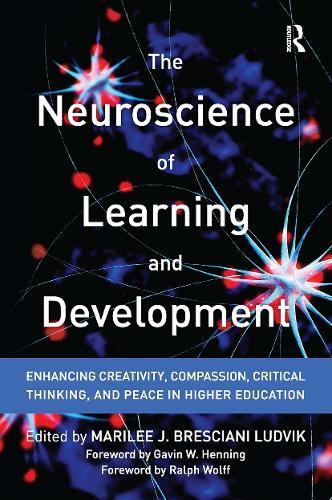Full Product Details
Author: Marilee J. Bresciani Ludvik ,
Marilee J. Bresciani Ludvik ,
Gavin W. Henning
Publisher: Taylor & Francis Inc
Imprint: Stylus Publishing
Dimensions:
Width: 15.20cm
, Height: 2.80cm
, Length: 22.90cm
Weight: 0.521kg
ISBN: 9781620362846
ISBN 10: 1620362848
Pages: 376
Publication Date: 18 January 2016
Audience:
Professional and scholarly
,
Professional & Vocational
Format: Paperback
Publisher's Status: Active
Availability: In Print

This item will be ordered in for you from one of our suppliers. Upon receipt, we will promptly dispatch it out to you. For in store availability, please contact us.
Reviews
It has been almost twenty years since How People Learn summarized initial insights from the new discipline of cognitive science, but these insights have up to now not been turned into practical advice about how to improve teaching and learning in college. Bresciani Ludvik and her colleagues admirably remedy this situation with this far-reaching volume. Going beyond acquisition of classic content and skills proficiencies, the kinds of learning this book addresses embrace equally the development of creativity, empathy, and mindfulness, and include the importance of wellness and relaxation in sustaining mental performance. Everyone who touches students in today s institutions from teaching faculty to student affairs professionals will find something to learn here. --Peter T. Ewell, Vice President
The right book at the right time. This timely and well-constructed book addresses a vital issue facing higher education today; the need to increase critical thinking, communication, creativity, and resilience for today's college graduates. Drawing on neuroscience research and the exploration of innovations in teaching and learning, this book explores exciting new approaches to improve the outcomes of the college experience. There is really nothing like this in the higher education literature - very impressive. --Kevin Kruger, President
Both graduates and employers continue to decry the failure of our institutions to develop the whole person, to integrate creating with knowing, and help students develop the tools for addressing the emotional as well as intellectual intelligence to handle stress, find balance, and respond to daily challenges of the their multidimensional lives. All of these tools are critical necessities to thrive in the face of the dramatically changing workplace and social context of our changing world. This book provides a compendium of tools for the inner personal and spiritual development of students as much as their intellectual development, and demonstrates in each chapter how the inner development strengthens both intellectual development and outer performance.I urge you to dive into this book at multiple points to use the chapters of greatest interest and applicability in your work; and to consider those chapters outside your normal frame of reference to see how they can contribute to rounding out your own and your students development. It is worth the effort and the challenge and the results, as reflected throughout the book are demonstrable. --Ralph Wolff, J.D.,
Higher education is increasingly the focus of attention as research findings about the benefits of education contrast with information about poor completion rates, equity gaps, and affordability. Business leaders and policy makers have asked whether students are learning what they need to in colleges and universities. Faculty and educational leaders who want to help their students learn and gain the credentials they need now have a helpful resource, based on current knowledge of brain functioning and how people learn, in The Neuroscience of Learning and Development: Enhancing Creativity, Compassion, Critical Thinking, and Peace in Higher Education. --George R. Boggs, Ph.D., Superintendent/President Emeritus Palomar College President & CEO Emeritus, American Association of Community Colleges
Author Information
Marilee J. Bresciani Ludvik is Professor for Postsecondary Education and Co-Director of the Center for Educational Leadership, Innovation, and Policy, San Diego State University. She was formerly Assistant Vice President for Institutional Assessment at Texas A&M University. She has conducted outcomes assessment for programs and courses and is frequently invited to present assessment workshops nationally and internationally. Ralph Wolff is President of the Senior College Commission of the Western Association of Schools and Colleges (WASC), a role he assumed in 1996. Prior to joining WASC, he founded and directed the Institute for Creative Thinking, which focused on leadership and change, an emphasis that has carried over to his work at WASC. During his term as president, he has led WASC to the forefront of accreditation as an agent of accountability and innovation by transforming the accreditation process to an outcomes and learning based model. His current efforts at the Commission include a redesign of the accreditation process that focuses on retention and graduation, defining degree outcomes more clearly, and opening the accreditation process to greater transparency. Gavin W. Henning is Professor of Higher Education at New England College in New Hampshire where he directs the Master of Science in Higher Education Administration and Doctorate of Education programs. Gavin is a past president of ACPA – College Student Educators International as well as a past president of the Council for the Advancement of Standards in Higher Education (CAS). He has over 20 years’ experience in higher education assessment and institutional research and frequently consults and presents regionally, nationally, and internationally on the topic. His scholarship includes over 90 peer-reviewed presentations and over 90 invited presentations and keynotes regarding assessment. In addition, he has published articles and books on assessment including Student Affairs Assessment:




